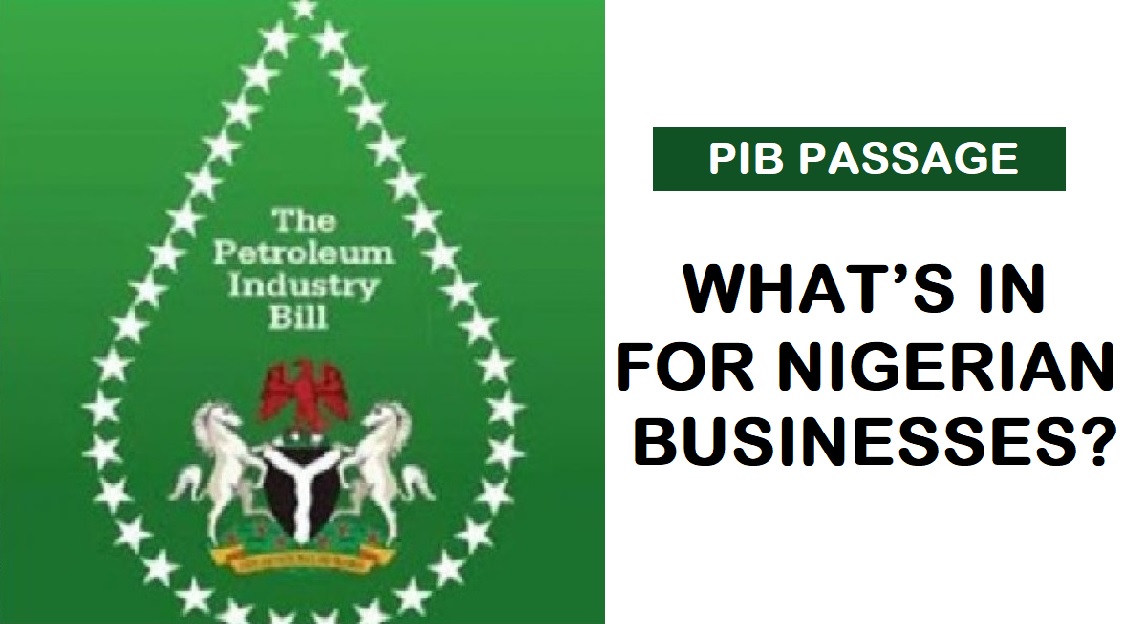On 1st of July 2021, a historical feat was achieved in Nigeria, after the National Assembly comprising of both chambers (Senate and House of Representatives) passed the Petroleum Industry Bill (PIB), 12 years after it was first conceived.
A lot of Nigerians received the cheering news with excitement and optimism, this is because the Bill is expected to drive a radical change in the petroleum industry and will be pivotal in addressing industry related issues like environmental concerns, alternative dispute resolution mechanism etc.
How much do you know about the PIB?
It is no longer news that Nigeria is blessed with immense oil and gas deposits, in fact experts opine that the country has the largest oil and gas reserves in Sub-Saharan Africa estimated to be around 37 billion barrels of oil and 188 trillion cubic feet of gas.
Incommensurate terms, the country has also raked in billions of dollars in oil revenue over the years, with most of these monies been siphoned or ending up in private pockets.
In addition, it is imperative to note these massive oil wealth and potentials have not translated into sufficient national development. A lot of factors have been responsible for the failure, among which are massive corruption and lack of transparency in the sector, leadership failure and a host of other bureaucratic bottlenecks.
To address these issues, the PIB explicitly highlighted key radical changes, some of which is succinctly captured below;
- The Bill seeks to overhaul and deregulate Nigeria’s oil and gas sector and will replace the obsolete Petroleum Act of 1969.
- The PIB seeks to lower royalties for new production from deepwater oilfields to 5% from 7.5% and boost the production level that triggers higher royalties from 15,000 barrels per day (bpd) to 50,000 bpd.
- The Bill also proposed to reduce the hydrocarbon tax for converted leases in the onshore and shallow water oilfields, from an initial 42.5% as contained in the initial provisions to 30%
- The PIB seeks to establish an independent regulatory commission — the Nigerian Petroleum Regulatory Commission, which incorporates the current Department of Petroleum Resources (DPR) and the Petroleum Product Pricing Regulatory Agency (PPPRA).
- The Bill also sought to unbundle the Nigerian National Petroleum Corporation (NNPC) into two limited liability companies, with one holding joint venture assets in the upstream sector and the other holding the production sharing contract assets.
Naijabusiness.com.ng understands that the Bill was first initiated in 2008 and has since undergone some radical changes, missing at least 20 deadlines since conception. In July 2012, President Good luck Jonathan presented a new version of the PIB to the National Assembly for consideration and enactment. There was some appreciable level of success in 2015, with the passage of the bill at the House of Representative in the 7th Assembly but progress stalled when the bill did not go through the Senate before the dissolution of the 7th Assembly, following the change of government in May 2015. In 2015, the Buhari administration proposed passing the PIB in various segments, forming four separate bills (Petroleum Industry Governance Bill, Fiscal Regime Bill, Upstream and Midstream Administration Bill, Petroleum Host Communities Bill).
READ: 12 Years After, National Assembly pass Petroleum Industry Bill
On Local Content
Local content development is important for countries like Nigeria that are endowed with abundant natural resources but whose oil and gas sector has traditionally operated in isolation from the rest of the economy, thereby allowing minimal participation from local citizens in its development. This is probably one of the major reasons why the huge potential of the sector is not being appropriately leveraged.
Given that the poor integration of the oil and gas sector with the wider economy has long been a concern for successive Nigerian governments, the PIB has made a concerted effort in addressing this issue. Take for example, in the recently passed PIB, a provision for about 3% derivative was provided for host communities. This provision if appropriately deployed might go a long way in developing local initiatives and skills, spurring development at the grass roots through the process.
One of the cardinal provisions in the Bill is the deregulation of the oil and gas sector, this without doubt will create a lot of multiplier jobs and income. Economically speaking, a deregulated oil sector will increase competition and in the long run lead to a convergence in petroleum prices to the market clearing point.
It is interesting to note that the Nigerian Oil and Gas Industry Content Development (NOGIC) Act defined Local content as: ‘’ the quantum of composite value added to or created in Nigeria through the utilization of Nigerian resources and services in the petroleum industry resulting in the development of indigenous capability without compromising quality, health, safety and environmental standards”.
On the other hand, local Content has been described as the development of local skills, oil and gas technology transfer, and use of local manpower and local manufacturing. On how Nigerian businesses can actively participate given the recently passed PIB, Section 106 of the Local Content Act was explicit in distinguishing between two levels of participation which are; ‘Operator’ and ‘Partner.’ All Nigerian businesses in this regards fall under the Operator category, and can explore a lot of businesses at the sector including but not limited to; oil lifting and transportation, exploration, field licenses, contractors, subcontractors, etc.

